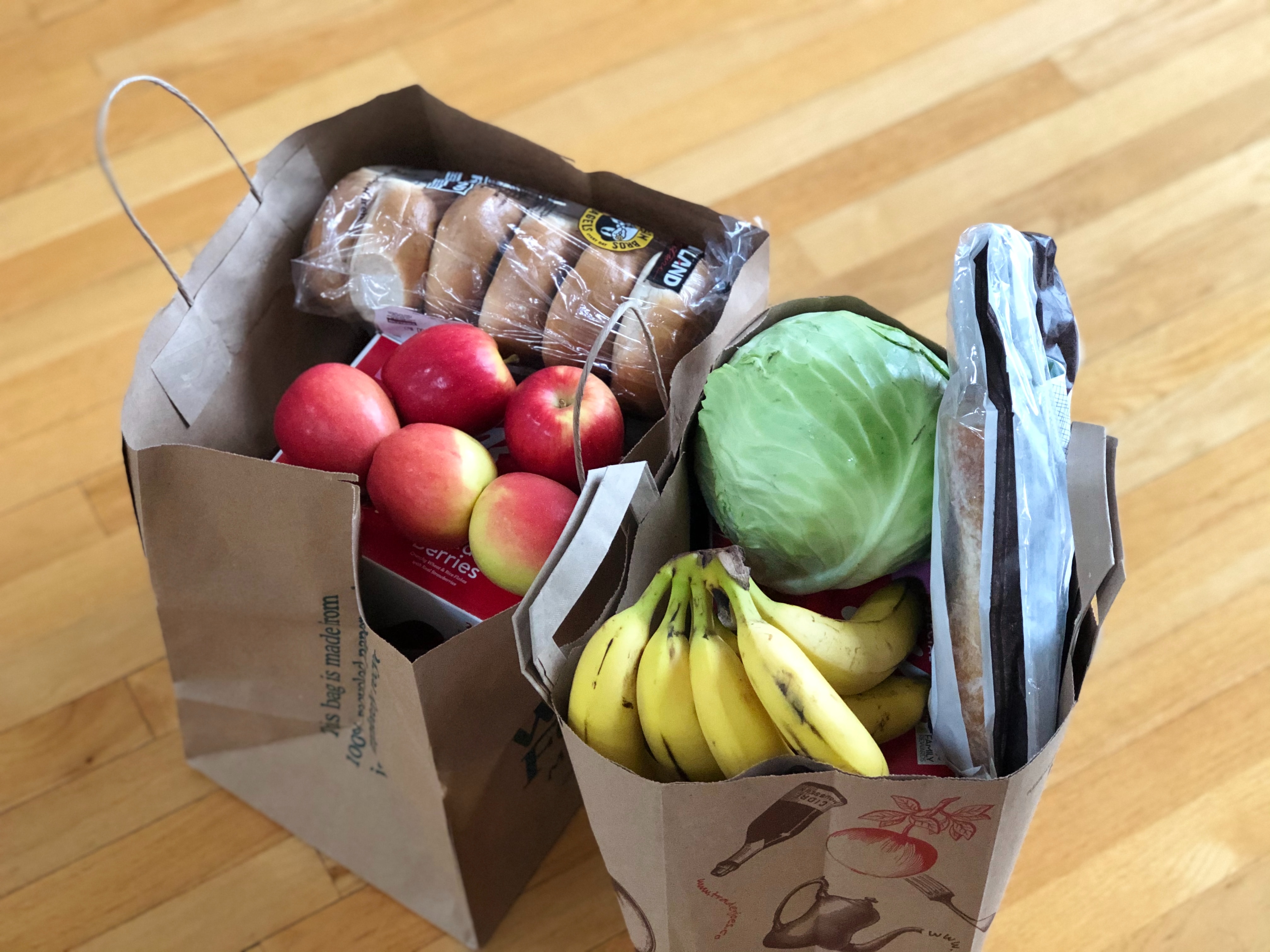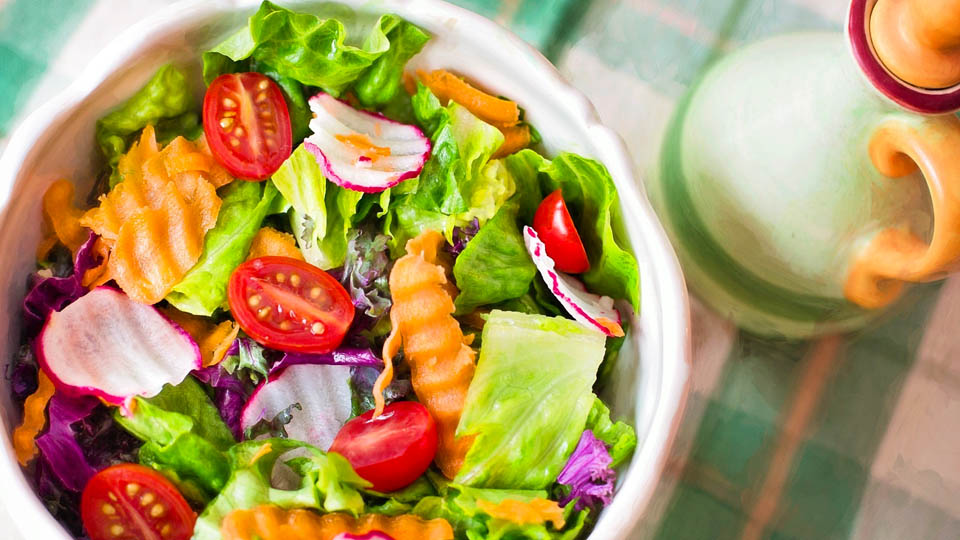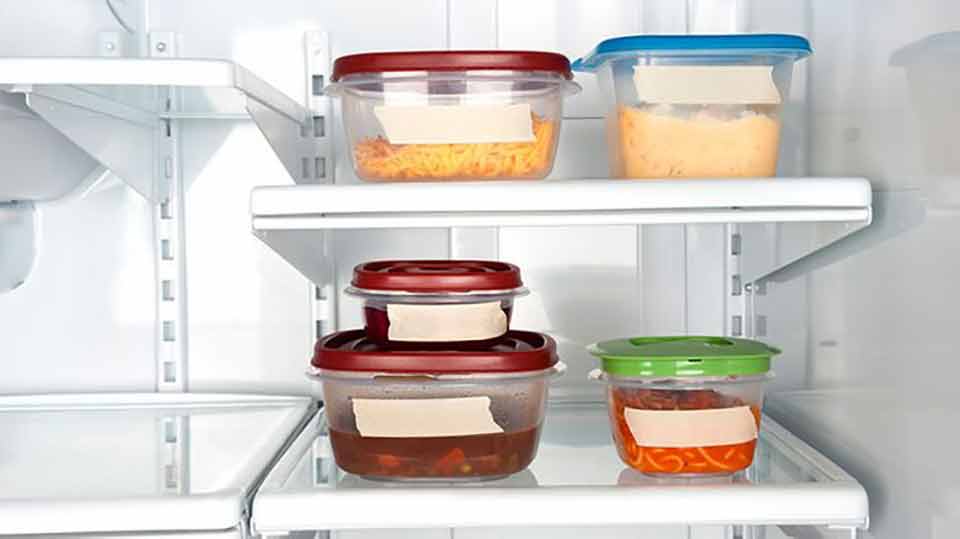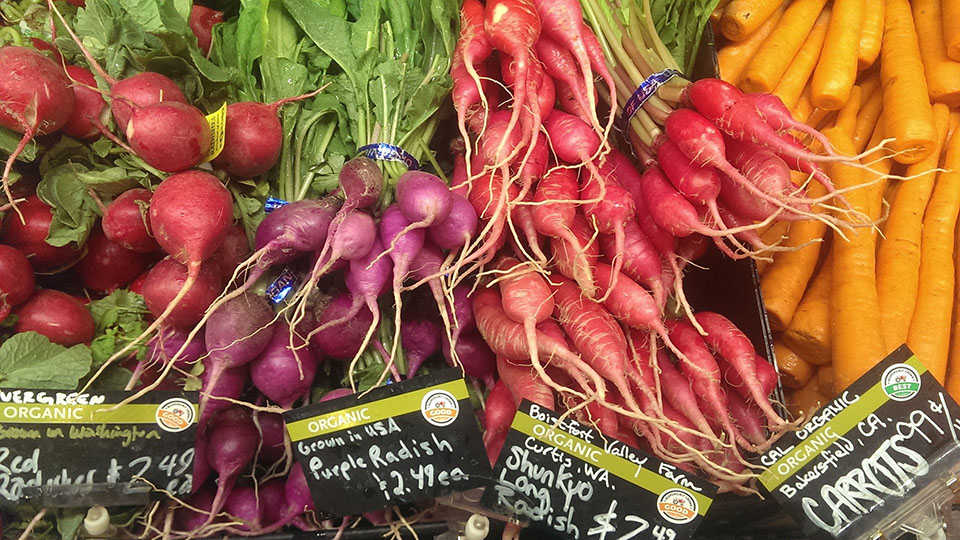Food Waste Prevention Part 3: Shopping

A large amount of consumer food waste comes from people simply buying too much food at the grocery store. Overestimating what your family will eat often leads to food spoilage. You may find that, learning and sticking to proper meal planning and shopping routines when grocery shopping will help you to decrease the amount of food wasted in your home.
Grocery stores are designed to increase the amount of money you spend. There are many strategies to encourage impulse buying in consumers, but with a little knowledge you can avoid buying more than you need. Here are some things to be aware of when grocery shopping:
- Promotions and deals are placed where consumers will most likely see them. They are often for items that you don’t need. Before being persuaded by a good deal, think about if you will really use that food item. Try to stick to your list as much as possible.
- Grocery stores often put desirable foods like sweets and snacks at the end of aisles, walkways, and check-out lines where consumers are most likely to notice them. Being aware of this can help you avoid impulse buying foods that you don’t really want or need.
Here are some basic tips for grocery shopping:
- Make a grocery list based off of your meal plans for the week, and stick to it!
- Do not shop when you’re hungry. This can lead to impulse buying which can lead to buying too much food and wasting it later on.
|
|
Shopping Tips to Reduce Waste |
|---|---|
|
Produce |
|
|
Breads & Dry Goods |
|
|
Canned Goods |
|
|
Dairy |
|
|
Frozen Foods |
|
For more information about how to properly store purchased foods to reduce food waste, visit Food Labels and Food Safety.
Here are some additional resources from USU Extension Create Better Health that you can use for extra tips on how to select the freshest produce and store properly to maximize the storage life of foods you purchase.
|
Resource |
Description |
|---|---|
|
Shopping for Produce – Tips and Tricks for the Grocery Store |
Fact sheet providing overall best practices for grocery shopping. |
|
|
Lists of various fruits and vegetables and tips on each of how to pick the best ones. |
|
Healthy Tips and Tricks for each section of the grocery store. |
|
|
General tips for grocery shopping. |
Overall, probably the most important tool you can use to avoid food waste while shopping is creating a list from your meal plan and sticking to it! To learn more, check out the next article in this series, Food Waste Prevention Part 4: Using Leftovers.
Resources
- Boyer, Renee & Mckinney, Julie. (2018). Food Storage Guidelines for consumers. Virginia Cooperative Extension. https://vtechworks.lib.vt.edu/bitstream/handle/10919/84264/FST-286.pdf?sequence=1&isAllowed=y.
- Glanz, K., Bader, M., Iyer, S. (2012). Retail Grocery Store Marketing Strategies and Obesity: An Integrative Review. https://doi.org/10.1016/j.amepre.2012.01.013
- Food Safety and Inspection Service, USDA. (2021) Food Keeper Version 8.0.0 [Mobile app.]. https://www.foodsafety.gov/keep-food-safe/foodkeeper-app
- Landry, W., Schwab, A., Lancette, G. (2017). BAM Chapter 21A: Examination of Canned Foods. U.S. Food and Drug Administration. https://www.fda.gov/food/laboratory-methods-food/bam-chapter-21a-examination-canned-foods
- SNAP-Ed Connection. (n.d.) Seasonal Produce Guide. United States Department of Agriculture, Food and Nutrition Service, SNAP-Ed Connection. https://snaped.fns.usda.gov/seasonal-produce-guide
- Stefan, V., Herpen, E., Tudoran, A., Lahteenmaki, L. (2013). Avoiding food waste by Romanian consumers: The importance of planning and shopping routines. Food Quality and Preference 48(1). 375-381. https://doi.org/10.1016/j.foodqual.2012.11.001
- Wu, Dominic. (2017). Eating Better: 3 keys to Healthy Grocery Shopping. Harvard Health Publishing. https://www.health.harvard.edu/blog/eating-better-3-keys-to-shopping-healthfully-at-the-grocery-store-2017032411333
Authors
Meghan Adair, Dietetics Student; Carrie Durward, Ph.D., RD, Extension Nutrition Specialist
Related Nutrition Articles












